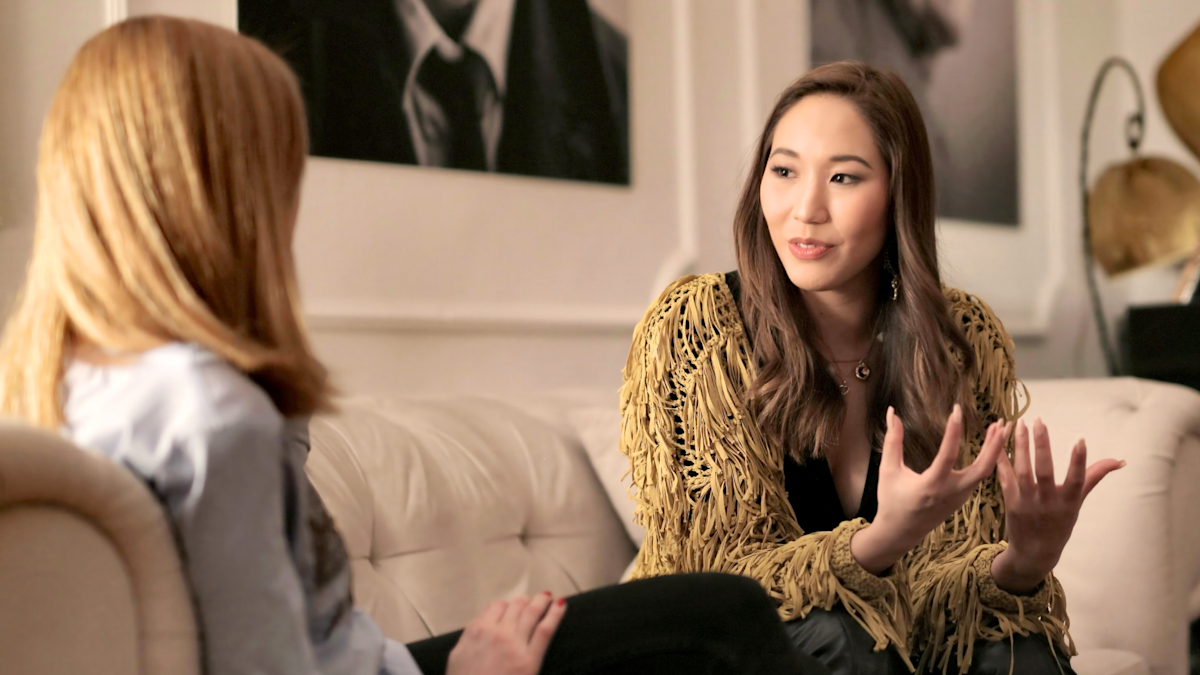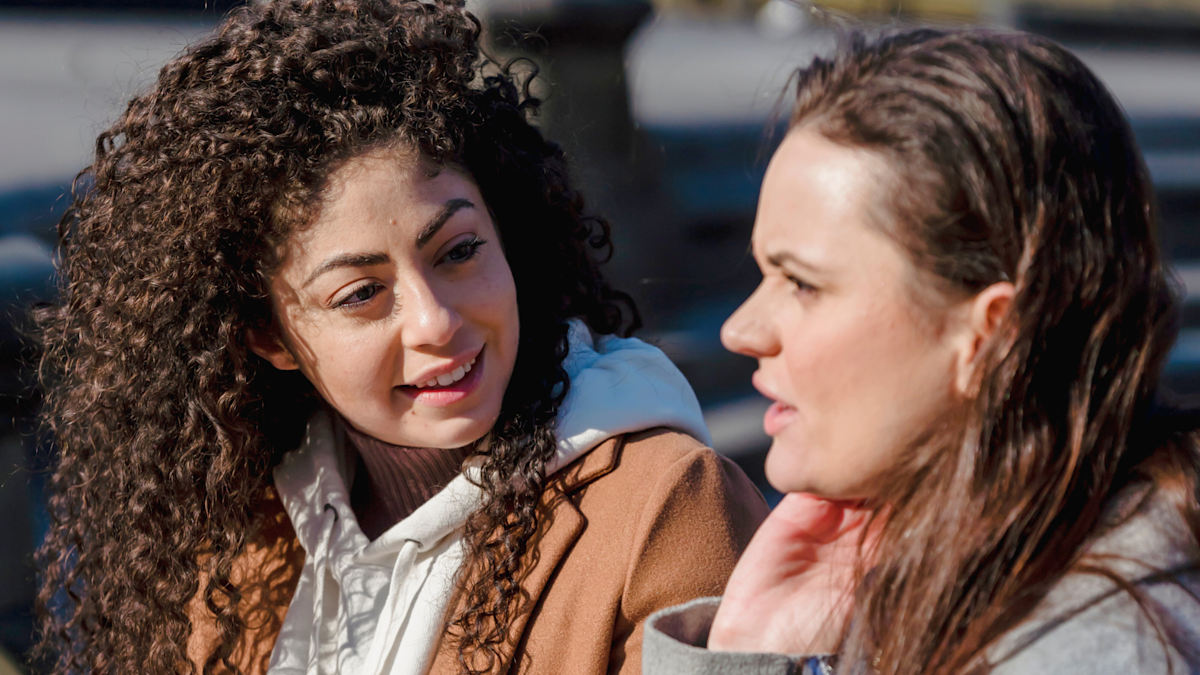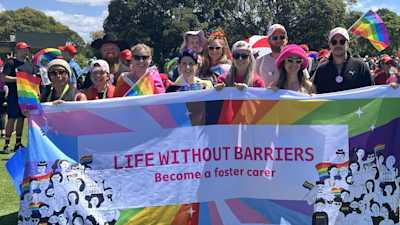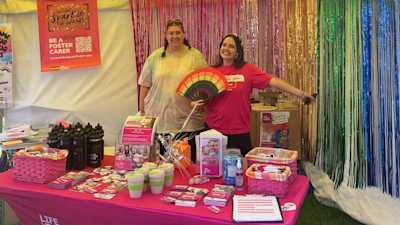The words we use matter when supporting people at risk.

Image: Two women sit on a couch, facing each other, engaged in a conversation.
When people hear about forced marriage, it often conjures up specific ideas or notions of a particular type of relationship, culture, or circumstance. But just like the experiences themselves, the language surrounding forced marriage is far more complex.
Through the Life Without Barriers Forced Marriage Specialist Support Program, one thing has become clear, many people experiencing, or at risk of forced marriage, don’t use those exact words. In fact, many people don’t identify with the term 'forced marriage' at all.
If we rely only on that terminology, we risk missing the very people who need our support the most. That’s why the way we talk, and listen, really matters.
We've heard from people we support describe their experience simply as 'family pressure', or that 'an agreement' had been made on their behalf. Others talked about being 'expected' to marry someone, or said they didn’t feel like they had a choice.
The same goes for language around forced marriage being a crime. For many impacted people, especially those experiencing pressure from family, labelling their situation as a criminal act can feel uncomfortable, frightening, or even disloyal.
When people don�’t see themselves as being forced into a marriage, they’re far less likely to come forward.

Image: Two women sit on a couch, engaged in a conversation.
So, how do we respond to these nuances? We get better at asking the right questions. Practitioners don’t need to hear someone say the words 'I’m in a forced marriage' to understand that one has occurred or could soon occur. What we do need is the curiosity, sensitivity, and training to unpack the situation with care.
That might look like asking questions such as:
Did you feel like you had a choice in this marriage?
What would have happened if you said no?
Did you understand what it meant to get married at the time it happened?
Who was involved in making the decision?
Has your family tried to control your relationships outside the family circle?
These aren’t always easy questions to ask, and they’re certainly not always easy to answer. But they can open the door to a deeper understanding of someone’s experience, especially when that person might be minimising harm or struggling to name what they’ve been through.
It also requires listening closely for subtle cues. Phrases like 'my parents organised everything' or 'I didn’t want to disappoint my family,' or 'I thought it was normal,' can all hint at a lack of genuine, informed consent.
It’s worth remembering that many people affected by forced marriage are still coming to terms with their experience or are trying to make sense of it in a context that feels safe. When we expect them to name it before we're willing to engage, we place the burden on them to interpret what happened, instead of meeting them with open-ended, trauma-informed support.

Image: Close-up of two women standing outdoors. One woman is talking, while the other looks in her direction, listening.
Language can either build bridges or barriers. And in a space as complex and deeply personal as forced marriage, we need to be intentional about the words we use and how we respond when someone’s words don’t match our expectations.
At Life Without Barriers, we're proud that our team are developing these much-needed skills and building the confidence to engage with nuance, ask better questions, and support people in ways that centre dignity and trust.
Because at the end of the day, it’s not about whether someone says, 'forced marriage'. It’s about whether we hear them anyway.
Forced marriage is a crime and should always be reported.
If you’re concerned that a friend or family member is being forced to marry, or you’re a supporting agency, you can safely refer them for dedicated and discreet support. Get support from Life Without Barriers by calling 1800 403 213.
If you or someone you know is experiencing, or at risk of experiencing, domestic, family, or sexual violence, call 1800 737 732, text 0458 737 732 or visit the 1800RESPECT website for online chat and video call services.
Life Without Barriers is funded by the Department of Social Services to provide the Forced Marriage Specialist Support Program. Further information is available on the Department of Social Services website.


